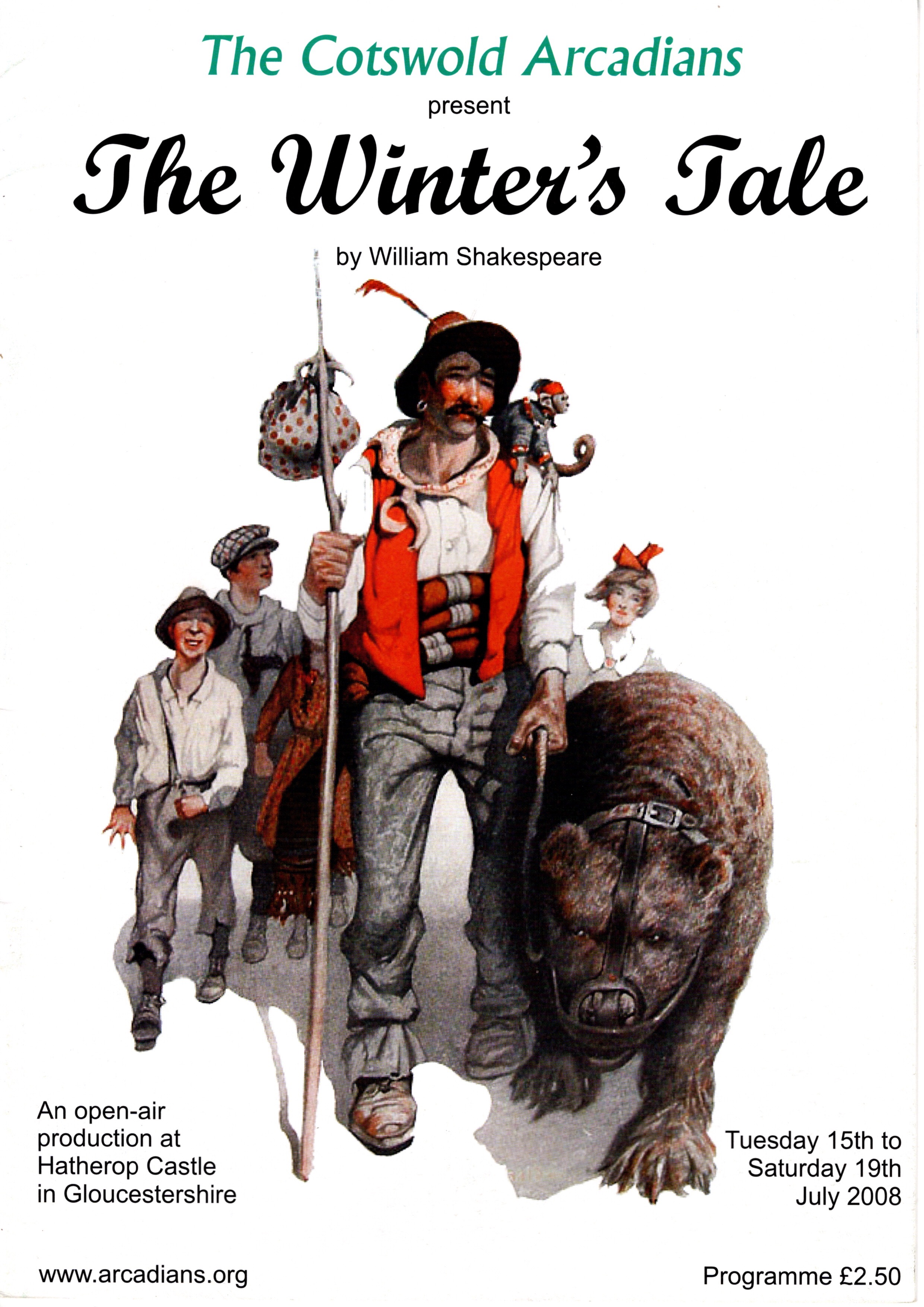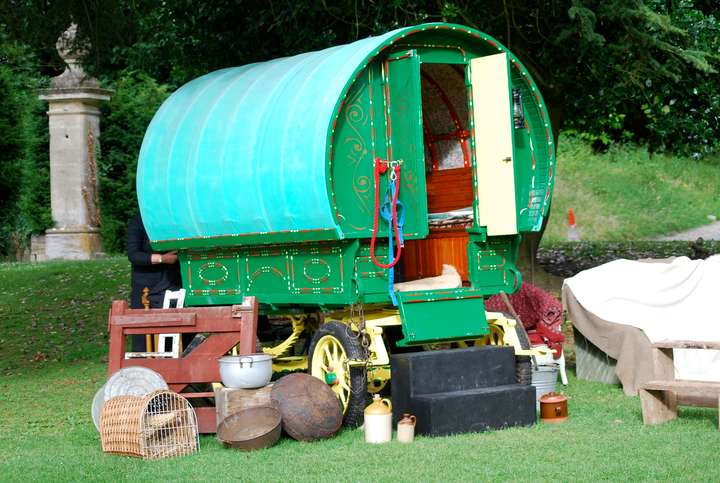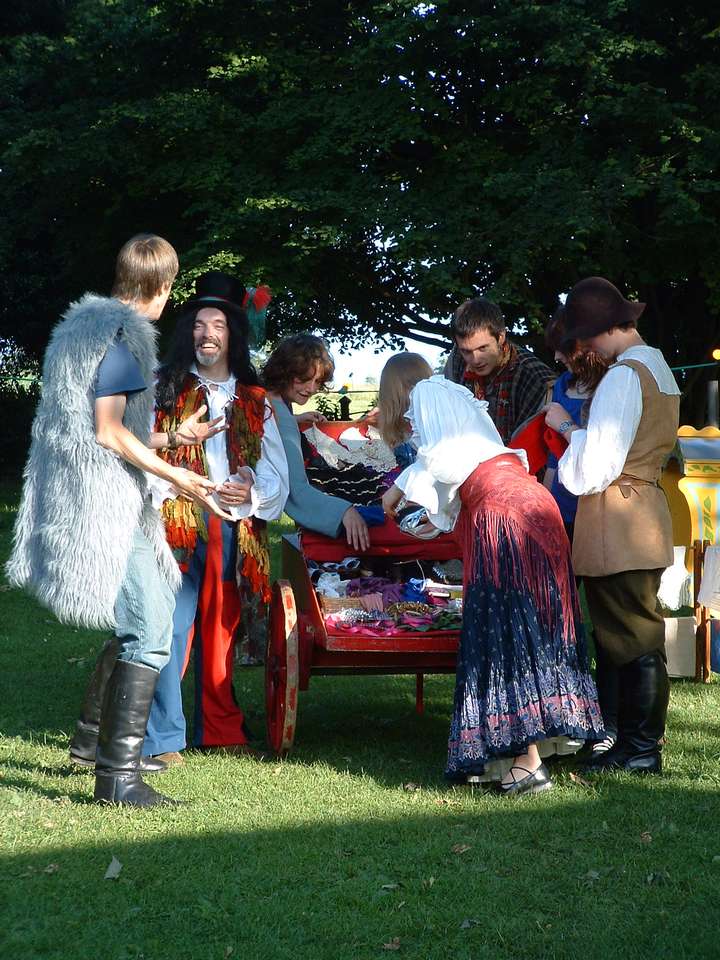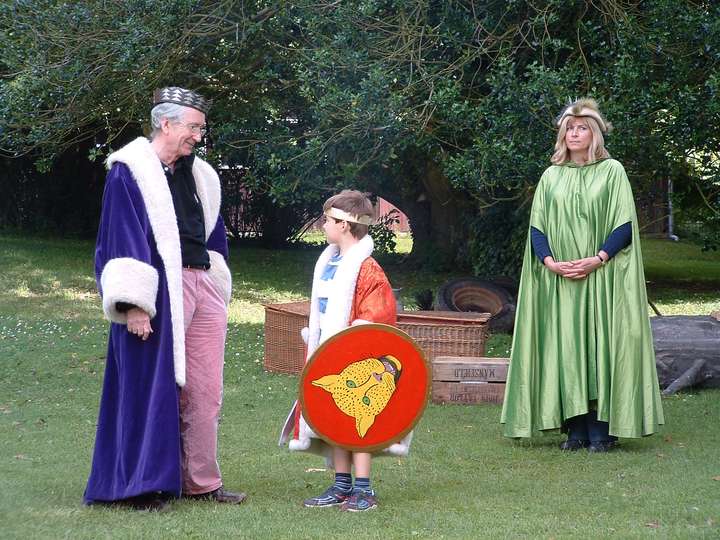
2008: The Winter's Tale
The Winter's Tale defies the standard categorisation: it is not an account of factual history, nor is it a tragedy heavy with deep messages; and it certainly isn't just another insubstantial comedy. As the title says, it is a tale ― which, like all good tales, has a moral. So we cast around for a context in which a tale might be told in winter, eventually settling on the idea of a gypsy encampment. Gypsy people traditionally stay in one place over the winter, and they often spend the long evenings singing, playing music, dancing or telling stories.
So The Winter's Tale began with gypsies returning to their encampment at the end of a working day, settling down for a drink and the evening's entertainment. A storyteller is chosen, as is a theme for her story. She introduces the characters, and gradually melts into the background as they and the story take on a life of their own, using items from the gypsies' accumulated possessions as costumes, props and scenery. She returns from time to time to move the story on, using words from Lamb's Tales from Shakespeare, to replace some of his linking scenes. The most striking feature of the play is how a happy ending could be conjured out of such a tragic beginning.


